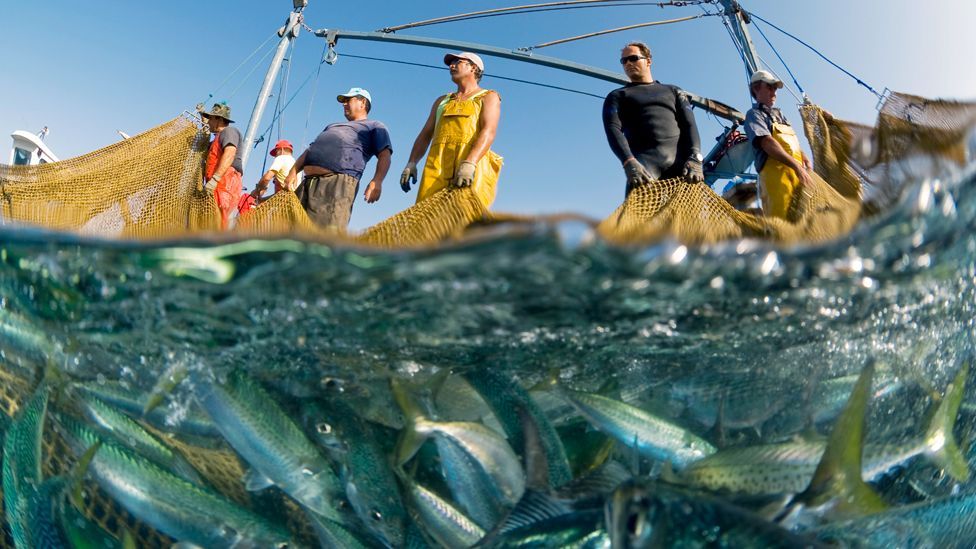Why in News?
- The Union government had issued draft guidelines on high-seas fishing (fishing in international waters off India coast, beyond the 200 nautical mile jurisdiction) in 2022.
- The Kerala State Fisheries Coordination Committee is getting ready to launch a protest against what it called “anti-fisherman” guidelines for regulating fishing by Indian-flagged vessels on the high seas.
What’s in Today’s Article?
- Need for the Draft Guidelines
- The Draft Guidelines for Regulation of Fishing by Indian Flagged Fishing Vessels in the High Seas, 2022
- Concerns Regarding the Draft Guidelines
- Issues raised by the Kerala State Fisheries Coordination Committee
- The Government’s Argument
- Way Ahead
Need for the Draft Guidelines:
- The notification accepts that marine fisheries are the livelihood of 4 million people in the country, it stresses the need for regulation to avoid over-exploitation and ensure sustainable use of the resources.
- The guidelines are necessary as currently, a considerable number (900+) of Indian vessels are fishing in areas outside the Indian EEZ without any protection or security from the GoI.
The Draft Guidelines for Regulation of Fishing by Indian Flagged Fishing Vessels in the High Seas, 2022:
- Any person engaging in deep sea fishing should obtain a valid permit from the issuing authority.
- The permit fee for boats more than 24m long is Rs 5 lakh while that of boats between 15m and 24m is Rs 1 lakh. The fee for boats between 12m to 15m is Rs 50,000.
- The licence issuing authority is the Union Ministry of Agriculture and Fisheries, and the validity of the permit is two years.
Concerns Regarding the Draft Guidelines:
- The regulations are issued as a guideline and not as part of the proposed Indian Marine Fisheries Regulation Act.
- The proposal to issue a permit to all Indian citizens for fishing on the high seas is also unacceptable.
- The licence fee is exorbitant and should be reduced by half so that it does not put a burden on the small-scale fishermen.
- Though the preamble talks highly about the small-scale fishers in India, the guideline goes on to support private players.
Issues raised by the Kerala State Fisheries Coordination Committee:
- The regulation will adversely affect around 650 small-scale deep sea fishing vessels operating from Kochi.
- Handing over the rights of high seas to monopolies would jeopardise the livelihoods of lakhs of traditional and small fishermen and work against the principles of sustainability.
- If the government goes ahead with this policy, there would be strong protests from fishermen’s unions and other stakeholders.
The Government’s Argument:
- The high seas resources are now being exploited by large vessels from countries like Japan, Korea, China, and the EU.
- These resources can be tapped effectively by Indian vessels with permits.
Way Ahead:
- The Union Ministry of Agriculture and Fisheries should cooperate with the fisheries department of respective maritime states for ease of issuing licences and conducting inspections.
- Formation of Regional Fisheries Management Organisation with neighbouring countries.
- The traditional fishermen want the government to support modernisation of the fishing fleet in existence and to bring them under a vessel monitoring system




